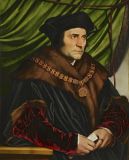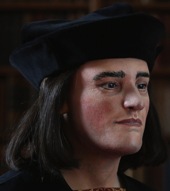AND THE WINNER IS:
 Barbara Gaskell Denvil. No surprise there for New South Wales Branch members and visitors to our website. Barbara’s imaginative and beautifully written books, Satin Cinnabar and Sumerford’s Autumn, and her well-researched features are much appreciated.
Barbara Gaskell Denvil. No surprise there for New South Wales Branch members and visitors to our website. Barbara’s imaginative and beautifully written books, Satin Cinnabar and Sumerford’s Autumn, and her well-researched features are much appreciated.
Her latest achievement is winning a copy of a young person’s novel The Disappearing Rose, by Canadian writer Renee Duke who, keen to promote her latest work, organised a competition on Lynne Murray’s blog to find out who people thought were responsible for the disappearance of the two Princes. Good idea – until she was alarmed to discover that Richard was winning!
An emergency email for help arrived in Julia’s inbox and, naturally, Julia sent a plea to all New South Wales members and friends to show that loyalty binds them and to save Richard from this undesirable fate!
And so they did. Renee reports that 34% of the votes and comments were from Australia which in a world-wide competition is pretty terrific – and Barbara’s comment was the winner. The overall results were:
First: Margaret Beaufort
Second: Henry VII and Richard III (tie)
Third: Henry, Duke of Buckingham and Elizabeth of York (another tie)
Fourth: Sir Thomas More
Fifth: two write-ins: No one (’cos they survived) and Henry VIII (he time-travelled)
Barbara’s winning comment was different again. She says,“I basically explained – very briefly – why I thought the princes actually survived.”
And that seems much more logical than the suggestion of the sainted More; his tender age when the princes disappeared makes it unlikely that he could have organised the event!
So, what of the book The Disappearing Rose? It is for young people, especially those who love time travel, history, mystery and adventure.
“No one knows what happened to the little Princes of the Tower. That’s what Dane, Paige, and Jack are told when they start working on a medieval documentary for Dane and Paige’s filmmaker father. But then an ancient medallion transports them back to the fifteenth century and gives them a chance to discover the truth about the mysterious disappearance of young King Edward the Fifth and his brother Richard, Duke of York. But they’d better be careful. The princes are definitely in danger, and the person responsible for their disappearance just might decide that their new friends should disappear as well.”
Sounds like good reading for tweens, teens and those over 21 too. The good news is it is the first in The Time Rose series. It is an e-book and more information can be found on http://museituppublishing.com.
Renee Duke, the author, grew up in England and says she has been interested in the princes ever since she read about them in a text book of the Uncle-Richard-did-it variety that still prevails. She’s hoping that the time travel approach will lure high tech fantasy obsessed children of today into considering other possible culprits.
Tags: Books, Elizabeth of York, Henry Tudor, Henry VIII, Margaret Beaufort, NSW Branch, Princes, Richard III, Thomas More


